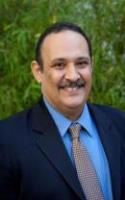
Biography:
Dr. Azzazy is a full, tenured professor of Chemistry at the American University in Cairo (AUC). He is also the leader of the Novel Diagnostics & Therapeutics Research group at Yousef Jameel Science & Technology Research Center and the director of the International Medical Technologists training program. Dr. Azzazy is also an adjunct professor at the Graduate School of Information Technology and Management, University of Maryland University College, USA. He served as director of biotechnology discipline at the Medical & Research Technology department (University of Maryland), the chairman of Chemistry department, the founding director of M.Sc. Chemistry program, and the Associate Dean for Graduate Studies & Research at AUC. He has published 56 referred journal articles, 55 conference abstracts, 24 text book chapters, and 8 monographs. Dr. Azzazy is a member of the editorial boards of the Clinical Biochemistry journal (Canada), Clin Chimica Acta (USA), and Clinical Chemistry Clinical Laboratory Medicine journal (Europe). Dr. Azzazy has received several awards including Upjohn Research Achievement Award (UNT), Graduate Faculty Award for the Outstanding Graduate (UNT-HSC), Clin Chem Chair's Award (Board of Registry, American Society for Clinical Pathology), Excellence in Research and Creative Endeavors Award (AUC), and Excellence in Teaching Award (AUC). In 2011, he received the State Prize in Advanced Technological Sciences from the National Academy for Scientific Research & Technology. Dr. Azzazy received his B.Sc. and graduate diploma in Biochemistry from Alexandria University, Egypt. In 1994, he received his PhD in Biochemistry and Molecular Biology from University of North Texas Health Science Center (UNT-HSC) in Fort Worth, TX, USA. He is certified as a diplomate of the American Board of Clinical Chemistry, Washington, DC, USA in two specializations: clinical chemistry and molecular diagnostics. He is also certified as a Specialist in Clinical Chemistry (SC), Board of Registry, the American Society for Clinical Pathology (ASCP), Chicago, IL, USA. Dr. Azzazy is a fellow of the National Academy of Clinical Biochemistry (FACB), Washington, DC, USA.
Abstract:
Hepatitis C infects 3% of the world's population, with 60-85% of the infected patients becoming chronically-infected. According to World Health Organization (WHO), Egypt has the highest global prevalence of Hepatitis C virus (HCV): an estimated 15-22%. HCV, a bloodborne pathogen, is the main cause of cirrhosis and hepatocellular carcinoma and kills around 40,000 Egyptians annually. Despite current control efforts, the virus continues to spread, with a conservative number of new infections estimated at 165,000 cases per year.
HCV mutates around the clock thus evading the immune system, greatly hindering vaccine development attempts, and complicating treatment strategies. There is no vaccine for HCV. On the diagnostic front, diagnosis of acute HCV infection is crucial, but it remains a challenge because most infected patients are asymptomatic, and current tests are unable to differentiate between acute and chronic infections. Current detection techniques, which start with the detection of exposure to the virus (ELISA) and is confirmed by the detection of HCV genome (realtime RT-PCR), are both expensive and time-consuming. On the therapeutic front, the newly-approved direct acting antivirals, used alone or in combination with interferon and/or ribavirin, have succeeded in curing over 90% of chronically-infected patients. The cost and side effects of the new drugs, however, remain a challenge.
This presentation will discuss the efforts necessary to reduce the reservoir of HCV infection in Egypt. These include the need for vaccine development, affordable diagnostic tests and therapeutics, and a comprehensive public awareness program.